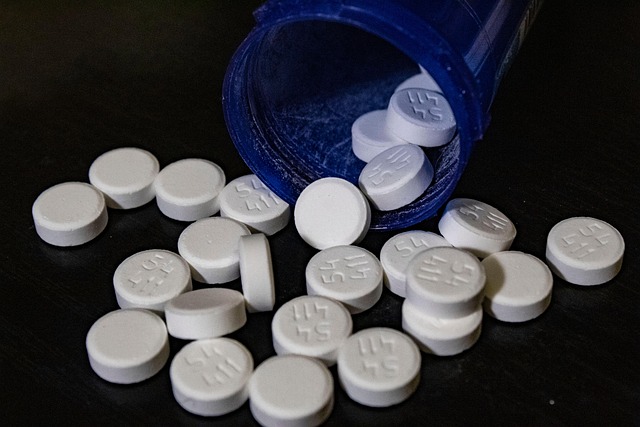The holiday season poses unique challenges for those in recovery, with triggers like social gatherings and stress. To navigate these high-risk situations, individuals should prioritize holistic wellness, participate in stress management workshops tailored for addiction recovery, and create a personalized relapse prevention plan. This plan includes identifying personal triggers, understanding high-risk situations, developing coping strategies, and utilizing resources like online support groups and crisis intervention training. Rehabilitation centers often offer specialized programs during the holiday season to help individuals make informed choices and maintain sobriety.
Personalized relapse prevention plans are a powerful tool for individuals seeking long-term sobriety. As the holiday season approaches, understanding and managing high-risk situations becomes paramount. This article guides you through recognizing common triggers during the holidays and offers practical strategies for creating effective personalized relapse prevention plans. Discover actionable tips on staying sober, navigating gatherings, and leveraging tools to maintain your progress. Explore these insights to embrace the holidays with confidence and peace of mind.
- Understanding High-Risk Situations: Common Triggers During the Holidays
- Creating a Personalized Relapse Prevention Plan: Strategies for Success
- Staying Sober and Navigating Holiday Gatherings: Tips and Tools
Understanding High-Risk Situations: Common Triggers During the Holidays

The holiday season, while a time for joy and celebration, can also present unique challenges for those in recovery from substance use disorders. Understanding high-risk situations and common triggers during this period is crucial to staying on track with personal relapse prevention plans. Many individuals struggle with managing stress, social pressures, and emotional fluctuations that often accompany the holidays.
One of the key factors to consider is the impact of social gatherings and holiday parties. These events can be triggering, as they may involve substance use or create a sense of isolation for those recovering from addiction. Prioritizing holistic wellness through balanced nutrition, regular exercise, and effective stress management techniques can empower individuals to navigate these situations with resilience. Additionally, participating in stress management workshops specifically designed for addiction recovery can provide valuable tools and support networks to help one stay focused on their goals during the holiday season.
Creating a Personalized Relapse Prevention Plan: Strategies for Success

Creating a Personalized Relapse Prevention Plan offers individuals powerful tools to navigate the challenges of the holiday season and maintain sobriety. This tailored approach involves identifying personal triggers, understanding high-risk situations, and developing coping strategies specific to each person’s needs. By proactively addressing potential pitfalls, individuals can significantly reduce the likelihood of relapse.
Incorporating strategies like Personalized Mindfulness Plans, which focus on staying present and aware, and utilizing Online Support Groups for Loved Ones of Addicts, provides additional layers of support. Crisis Intervention Training Equipping Individuals to Recognize Emergency Situations is also vital, teaching individuals to identify and manage intense emotions or situations that could lead to a relapse. Through these methods, people can gain the skills necessary to stay sober during high-stress periods, such as holidays, where triggers may be abundant.
Staying Sober and Navigating Holiday Gatherings: Tips and Tools

The holiday season can be a challenging time for those in recovery, as social gatherings often involve alcohol or other triggers. However, with a personalized relapse prevention plan, individuals can navigate these high-risk situations successfully and stay on track with their sobriety. One effective strategy is to prioritize holistic wellness—including proper nutrition, regular exercise, and stress management techniques—to promote overall well-being. Balancing these aspects can help reduce cravings and provide the mental clarity needed to resist temptations.
Additionally, seeking support from recovery services or connecting with like-minded communities can offer valuable guidance and encouragement. Rehabilitation centers near me often provide specialized programs tailored for the holiday season, offering practical tools and resources to ensure individuals stay sober during this time. These services cater to various needs, from nutritional counseling to group therapy sessions, empowering those in recovery to make informed choices and maintain their progress.
Personalized relapse prevention plans are powerful tools for navigating the complexities of the holiday season. By proactively identifying high-risk situations and implementing tailored strategies, individuals can embrace the joy of the holidays while maintaining their sobriety. Combining understanding of common triggers with practical tips like those outlined in this article equips folks with the knowledge and resources needed to stay on track during what can be a challenging time. Remember, staying sober during the holiday season is achievable when armed with the right tools and support system.






